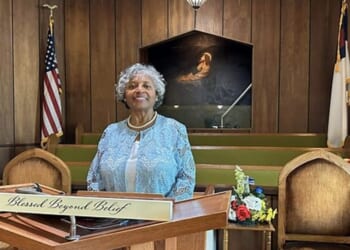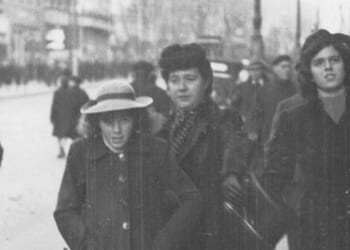THIS book bears witness to the tsunami of grief which sweeps those bereaved by suicide off their feet, tossing them into unfathomably deep water, where the struggle for understanding is often experienced as a battle between self-recrimination and profound despair.
The Talking Together service held annually at St Martin-in-the-Fields provides time and space where those affected by suicide can voice their experience or listen to others who have walked the same path and found consolation in companionship and endeavour shared for the sake of lost loved ones.
Life Beyond Suicide draws directly on contributions written over the past ten years for that service, which follows a well-disciplined format usefully described for replication in other settings by Ann Feloy, who set up the charity Olly’s Future after losing her 22-year-old son to suicide. The book includes the welcome and introduction penned freshly each year by David Mosse, who had no inkling of his teenage son’s intentions until it was too late to change the course of history. It also includes the various addresses by Sam Wells, as Vicar of St Martin’s.
The personal testimony of parents, partners, siblings, and friends, together with reflections from those who have thought of taking their own life in the past, bears witness to the pain and guilt felt by survivors as all the “whys” and “what ifs” of the tragedy are replayed, time and again, behind doors that seem to shut the rest of the world out — doors so often guarded closely by the suicidal, in the attempt to hide their distress and defend their autonomy.
These contributions are woven into a tapestry of music, poetry, readings, and the three symbolic acts that mark different phases of the service — starting with Loss, and the laying down of a rock; moving into the Valley, when a candle is lit, and ending with Found, when a rose symbolises the gradual flowering of acceptance, healing, and hope.
Wells’s chapter, “Faith in the Face of Suicide”, alludes to the harsh attitude of the Church of the past and briefly refers to the views of world religions, but otherwise casts suicide and its aftermath in the web of the strongly incarnational, Christocentric, and compassionate theology that characterises all his writing. God is with us, and for us, even when we feel isolated by grief, or find the gift of life too much to bear. His love is stronger than death: stronger than our ability at times to navigate our way through the valley of the shadow of death alone. Walking and talking together about the twists and turns of that path and praying helps us to reconnect with God and restores the will to live and love, in the light of eternity.
Since the book may be hard to read when grief is raw, I would be wary of commending it to anyone recently bereaved by suicide, but it is well worth a place in a priestly library, not least as a source of inspiration for words that might resonate at a funeral or memorial service or ceremony, and for describing the tried and tested format for a Talking Together service that might meet local need.
The Revd Penny Seabrook is a retired priest in south-west London.
Life Beyond Suicide: Reflections on loss and love
Samuel Wells, Ann Feloy, and David Mosse
Canterbury Press £16.99
(978-1-78622-651-8)
Church Times Bookshop £15.29

















